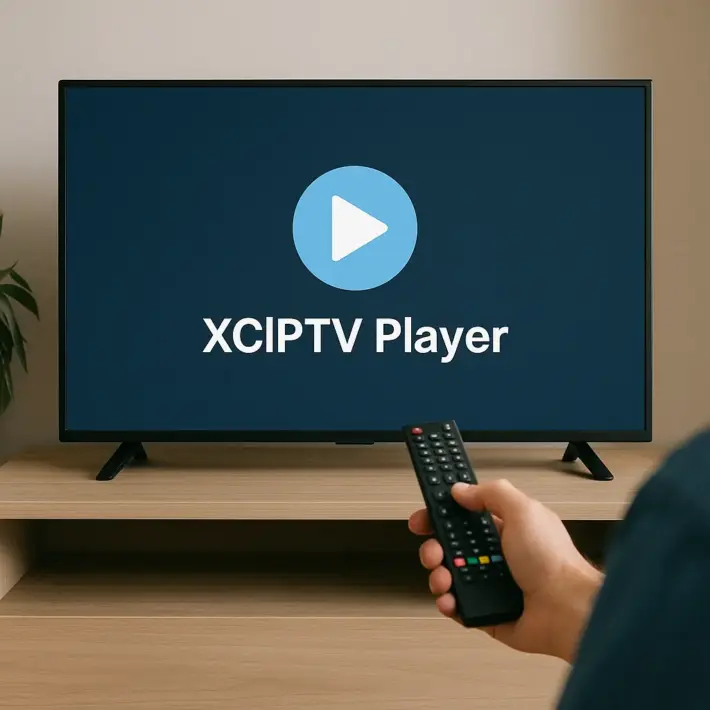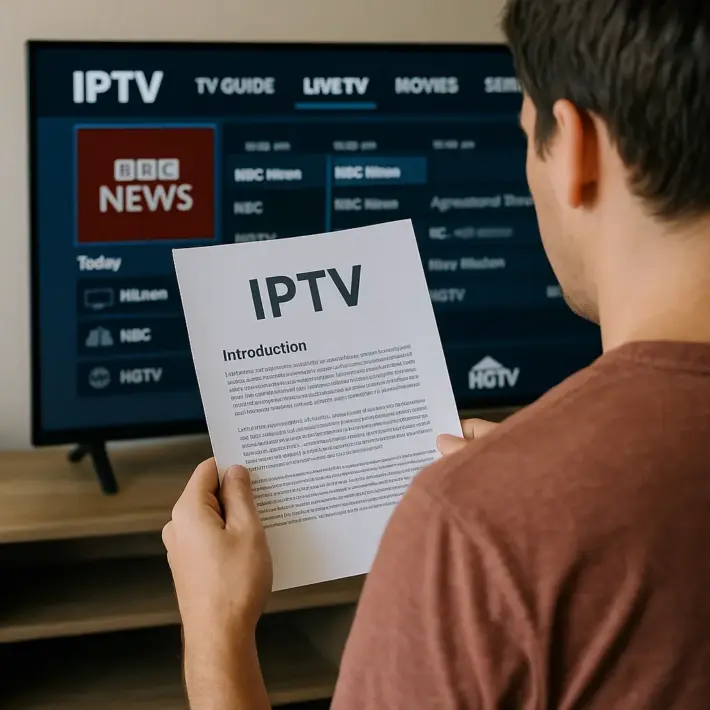What is IPTV and how does it work ?

IPTV, or Internet Protocol Television, is changing how we watch TV. Instead of using traditional cable or satellite services, Internet Protocol Television delivers content over the internet. This lets you enjoy live TV, on-demand movies, and shows with added features like pausing, rewinding, or fast-forwarding content. All you need is a stable internet connection and a compatible device like a smart TV or set-top box.
Why IPTV Is Different
Unlike traditional TV, which locks you into a fixed schedule, Internet Protocol Television gives you more control. You can watch what you want, whenever you want, from almost any device. This flexibility and the ability to watch content on-demand have made Internet Protocol Television popular among modern viewers.
How Does IPTV Work?
IPTV sends TV signals over the internet rather than through cables or satellites. The content is streamed directly to your device using internet protocols. Once received, a set-top box or smart TV decodes the signal and plays the content. This method offers more flexibility and a higher level of interactivity than traditional TV broadcasting.
Streaming and On-Demand Features
With Internet Protocol Television , you get a blend of live broadcasts and on-demand content. Live TV lets you watch shows as they happen. On-demand content gives you access to movies and series you can watch whenever you like. This mix of options ensures that you have access to entertainment around the clock.
IPTV vs. Traditional Television
Traditional TV services limit you to a set schedule and viewing on specific devices. IPTV, on the other hand, offers more freedom. You can stream on various devices like smartphones, tablets, or smart TVs, making it easy to watch from anywhere. Additionally, Internet Protocol Television lets you pause, rewind, and fast-forward live TV, features not available with traditional TV.
The Technology Behind IPTV
IPTV uses modern internet technology to deliver content smoothly. It relies on video compression and multicasting, which allow for efficient streaming while conserving bandwidth. This ensures you get high-definition or even 4K quality, provided you have a fast enough internet connection.
Types of IPTV Services
IPTV services come in various forms to match your preferences. These include:
- Live TV Streaming: Watch live broadcasts of your favorite channels.
- Video on Demand (VoD): Access a library of movies and shows available to watch whenever you like.
- Time-Shifted TV: Pause, rewind, or fast-forward live broadcasts, giving you control over when you watch content.
Each of these options makes it easier to customize your viewing experience based on your preferences.
Equipment Needed for IPTV
To enjoy IPTV, you’ll need a few basic items. First, you need a device capable of streaming, such as a smart TV or a set-top box. Additionally, a high-speed internet connection is crucial for smooth streaming. For standard-definition content, a connection of at least 3-4 Mbps is recommended. For high-definition, a speed of at least 10 Mbps is ideal.
Other equipment like routers or network-attached storage (NAS) may help improve your IPTV experience by reducing interruptions.
Advantages of IPTV
IPTV offers several advantages over traditional TV. Here are some key benefits:
- On-Demand Content: Watch shows or movies whenever you like.
- Interactive Features: Pause, rewind, or fast-forward live TV. You can also get personalized recommendations based on your viewing habits.
- Multi-Device Access: Enjoy your favorite shows on a wide range of devices, from your smartphone to your smart TV.
- High-Quality Streaming: Internet Protocol Television often provides HD or 4K video quality, enhancing your overall viewing experience.
Additionally, IPTV services can be bundled with other internet-based services, like VoIP, creating a full package for communication and entertainment.
The Growth
IPTV is growing rapidly, as more viewers move away from traditional TV models. With the expansion of high-speed internet, becoming increasingly accessible. According to projections, the global IP TV market is expected to surpass $115 billion by 2026, with a growth rate of over 17% per year. North America currently leads in IPTV adoption, but Asia-Pacific is quickly catching up due to expanding internet infrastructure.
As more viewers seek flexible, on-demand entertainment, IP TV is set to dominate the future of television.
Frequently Asked Questions
The legality of IPTV in Canada depends on licensing agreements and copyright compliance. While some providers operate legally, others face enforcement challenges due to unauthorized content distribution, raising consumer rights and policy debates.
Picture a world of endless entertainment at your fingertips. With IPTV, you’ll find diverse subscription options and pricing structures to fit your needs, from free trials to premium packages, though be mindful of potential hidden fees.
You’ll need a high-speed internet connection, a compatible device (smart TV, streaming box, or computer), an IPTV subscription, and a media player app. Some providers offer set-top boxes for easy installation and access to their services.


